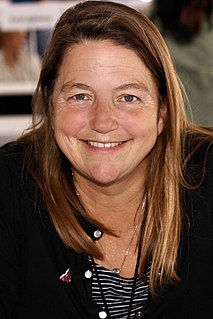A Quote by Pam Houston
Do you write novels?" I said. "Novels, Lord no," she said. "I can't even stay married.
Related Quotes
Why do I like to write short stories? Well, I certainly didn't intend to. I was going to write a novel. And still! I still come up with ideas for novels. And I even start novels. But something happens to them. They break up. I look at what I really want to do with the material, and it never turns out to be a novel.
I was secretly convinced that with such a marvel one would be able to write anything, from novels to encyclopedias, and letters whose supernatural power would surpass any postal limitations--a letter written with that pen would reach the most remote corners of the world, even that unknowable place to which my father said my mother had gone and from where she would never return.

































